ELECTRONIC NOTARISATION IN SRI LANKA – THE LEGAL PERSPECTIVE
ELECTRONIC NOTARISATION IN SRI LANKA – THE LEGAL PERSPECTIVE
By Panduka Warun Bandara
Abstract
With respect to critical documentation, the concept of certification or assurance of an independent, respectable, and authoritative third party who will vouch for the authenticity of a document has arisen.
Typically, the aforementioned third party is referred to as a notary. Traditionally, the documents requiring attestation before a notary are in physical form, and the parties, the witnesses, and the attesting notary sign using their wet-ink signatures. With technological development, most transactions can be carried out regardless of physical boundaries. Documents can also be signed electronically without physical paper or presence. Sri Lanka also adopted laws to enable electronic documents and signatures following international conventions.
However, such laws expressly excluded documents requiring notarial attestation. Therefore, the documents requiring notarial attestation cannot be executed electronically. Furthermore, the parties and witnesses must be physically present with the notary when signing the documents. Therefore, parties with notarisation requirements will have no chance to benefit from developing laws in electronic transactions.
However, in some countries, such as the USA and the UK, remote online notarisation has been implemented. This research analysed the legal regime on notaries in Sri Lanka, compared the same with electronic notarisation laws in a foreign jurisdiction such as the USA and the UK, explored to what extent electronic notarisation can be introduced to Sri Lanka and finally made recommendations to introduce a framework for electronic notarisation in Sri Lanka including the enactment of new laws, regulations and guidelines and amendments to an existing legal regime.
Download File
File Name: ELECTRONIC NOTARISATION IN SRI LANKA
Size: 388 KB
Format: PDF
Browse By
© 2012-2019 ICBT Campus | Design by ICBT IT Team | ICBT All Rights Reserved.
Design by ICBT IT Team

